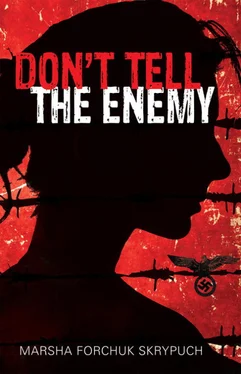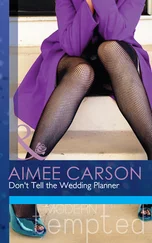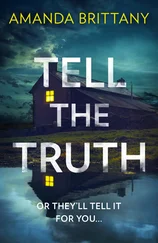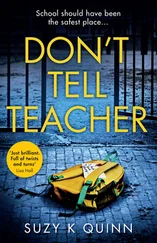I reached into the box to see what it was Auntie Stefa had got on sale. Flat packages of something wrapped in Cellophane. I pulled one out and held it up to the light from the window. A package of ladies’ silk stockings? I pulled out the next package and the next. The entire box was filled with silk stockings. How utterly useless. What farmer would want stockings ? I packed them all away and climbed back down the ladder.
* * *
Something else that gnawed at me was Krasa’s pregnancy. Would we be punished for not disclosing that she would have a calf in the spring? As each day went by and her belly got more noticeable, I was sure we would be caught. How long did we have before a policeman noticed? They would take her away, that was for sure, but would they punish just me? Or Maria and Mama as well? Added to that, Krasa’s milk was drying up more quickly than we expected. It was going to be a very hungry winter.
I shared my worries with Auntie Polina the next time she came to the pasture with potatoes. “I have a solution,” she said.
The following day she met me at the pasture, a dull-eyed cow in tow. “This is Yasna,” she said. “Believe it or not, her name matched her personality when she was younger.”
“I imagine you were very bright and pretty in your day,” I murmured to the old cow, scratching her between the ears. Then I asked Auntie Polina, “Why did you bring her here?”
“We’ll trade,” said Auntie Polina. “I’ll keep Krasa over the winter. I’ve got enough good hay, and she can give birth in the country. The Commandant will be none the wiser.”
“But didn’t Yasna stop giving milk long ago?” I asked. “We’ll starve without milk.”
“Yes, Yasna is dry. And Krasa will be drying up soon. Lysa too. But I’ll make cheese and bring it when I can,” said Auntie Polina. “And in the spring, we can swap back. Take Yasna home. She’ll give you an excuse to come to the pasture to get produce from me until winter sets in. Plus, if anyone checks, you’ll still have your one allotted cow.”
It was a good plan. I hugged Auntie Polina with all my strength. “Thank you.”
* * *
These were small victories over the enemy — the extra food so our friends wouldn’t starve, and making sure we kept Krasa safe so we wouldn’t starve — but then the Commandant circulated another notice. It was a long and detailed one. Copies were nailed to posts and buildings all over town. Doctor Mina stood beside me as we read. She was a fast reader, so she summarized it: “They’re making all of the Jews of Viteretz — or should I say Lebhaft — move out of their homes and crowd into this area.” She pointed at a map of the city. “They’re calling it the Jewish Ghetto.”
The notice flapped in the wind. I held down the bottom to keep it still. Doctor Mina pointed to a greyed-out area. “That’s where we’re all supposed to move.”
It was a bombed-out area in the oldest part of the town, between the boarded-up Old Synagogue and the town square. It used to have stores and a warehouse, but many of the buildings had fallen into disrepair even before the war. In the last two years, those buildings had been hit by artillery fire, so even the ones that still stood were not fit to live in. During the Soviet occupation, the ragged refugees who had followed the Soviets here would build campfires in the bombed-out rooms for warmth and cooking. When the Soviets fled, the refugees followed them, leaving rotting refuse and smouldering campfires in their wake. The area was uninhabitable, and it was also just two blocks long. There had to be more than a thousand Jews still in Viteretz. How could they all fit into such a tiny area?
“When do you have to move?” I asked.
“They’ve given us two weeks.”
“Perhaps now is the time to escape,” I whispered to Doctor Mina. “All of you have your papers now.”
“And where would we escape to, Krystia?” she asked, throwing her arms up. “There is no safe place for Jews to go. Besides, with the food restrictions and overwork, our people will need me more than ever.”
And while I nodded my agreement, I felt like weeping. Yes, there was danger in escaping, but there was danger in staying too. Being in the ghetto would make them a sitting target.
For the next two weeks, the mood of Viteretz was one of high frenzy. While most Jews were out on forced labour duty, Doctor Mina combed the area that would be the ghetto, looking for a suitable place to live.
“We found a room,” Dolik told me finally. “It’s on the second floor of what used to be the sugar beet warehouse.”
“The three of you will all be living in a single room?” I asked.
Dolik shook his head. “That room is for us, plus the Segals — so six in one room. You wouldn’t believe what the owner is charging us. That’s why our two families have to rent it together.”
The Commandant declared that each Jew was allowed to bring only a single suitcase into the ghetto. Anything left behind became property of the Reich.
“I won’t be able to have a darkroom in the ghetto,” Mr. Segal confided to Mama.
“But without your photographs,” Mama asked, “how can Ivan make the counterfeit documents?”
“We’ll still have our cameras, but it’s a matter of developing the film.”
“We’ll take your darkroom equipment to the insurgents’ bunker in the woods, then,” said Mama. “And Michael, you’ll have to write out very careful instructions on the developing process, so someone there can do it.”
* * *
Doctor Mina’s single suitcase was stuffed with just food, essential medical supplies and cash. Dolik and Leon’s suitcases were similarly packed. All three wore as many layers of clothing as they could, with winter coats on top and pockets stuffed full. Even so, they had to leave a lifetime of possessions behind.
Doctor Mina sighed as we surveyed her second-floor office. “Look at how much of my medical supplies I’m losing.”
Her office was larger than our entire small house, the shelves stuffed with hundreds of precious vials and bottles and boxes.
“We could put some of it in our loft and try to bring it to you bit by bit,” said Mama. “But there will be so much left behind.”
“Perhaps we should smash all this?” said Doctor Mina. “I don’t want the Nazis to get it.”
“What about the insurgents?” I asked. “They surely have need of medical supplies.”
Doctor Mina turned to me. “That’s a good idea.”
The insurgents used the frenzy of the Jews’ house-swapping, packing and moving to sneak box upon box from Doctor Mina’s office. Some of her supplies were stored in the church until Uncle Ivan could get them, and one box was put under our kitchen table. With a lot of subterfuge and a little bit of luck, a good portion of the precious medicines made it to the woods. One box of essential supplies stayed hidden in our loft.
* * *
During the upheaval of the move to the ghetto, a handful of Jews with false documents escaped. Some headed to Germany, the eye of the storm, posing as Ukrainian slave labourers. Others fled to the woods. But the Segals, like the Kitais, decided to stay: the Segals to help with the false documents in order to get more people out, and the Kitais so Doctor Mina could look after the sick and injured in the ghetto.
No sooner had our friends moved into their cramped quarters than the houses their families had lived in for generations were occupied by our enemy. This was well and truly becoming a Nazi town, with our neighbours all replaced, except for the Zhuks next door and the priest and Anya across the road.
Would the Nazis be watching us for unusual activity now? How would I transport documents and food without raising suspicion? And once there was snow on the ground, I would no longer be able to use the pretext of taking Yasna to pasture.
Читать дальше



![Quiet Billie - Don't mistake the enemy [СИ]](/books/421973/quiet-billie-don-t-mistake-the-enemy-si-thumb.webp)








